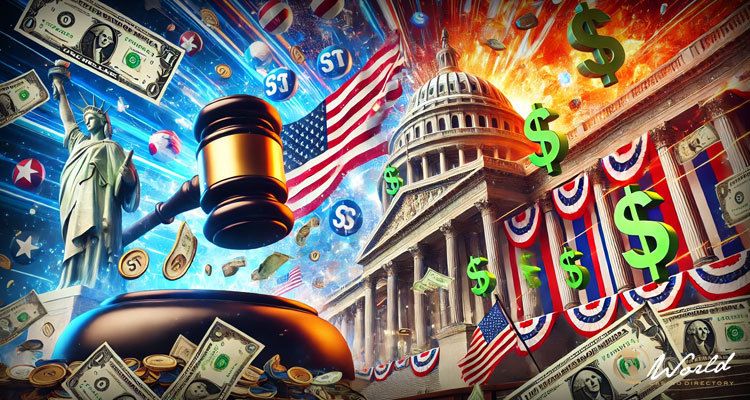Betting activities commenced on Thursday, September 12, on the upcoming November congressional elections. This follows a judicial ruling permitting such wagers—the only instance sanctioned legally in the United States.
Kalshi, a New York-based startup, initiated the offering of these wagers following a judgment by U.S. District Court Judge Jia Cobb in Washington, who rejected attempts to obstruct these activities. Consequently, the company is now provisionally enabled to offer prediction contracts nationwide. These contracts pose straightforward yes-or-no bets, predicting which political party will control the Senate and House come November.
Enthusiasm and concerns surrounding the new betting framework:
Tarek Mansour, a co-founder of Kalshi, expressed his enthusiasm about the milestone: “The Kalshi community just made history, and I know we are only getting started,” he stated. “Now is finally the time to allow these markets to show the world just how powerful they are at providing signal amidst the noise, and giving us more truth about what the future holds.”
However, the Commodity Futures Trading Commission (CFTC), which had previously banned the company from offering such bets, announced its intention to swiftly appeal the decision. The CFTC’s concern centers on potential financial manipulation aiming to skew the election outcomes.
As the day progressed, the pricing on Kalshi’s prediction contracts fluctuated. For instance, a bet favoring the Republicans to take the Senate was priced at 76 cents, suggesting a potential payout of $129 for a $100 bet. Conversely, a bet on the Democrats regaining control of the House stood at 63 cents, which could result in a $154 return on a $100 stake.
As Associated Press (AP) reports, the move to allow betting on political outcomes has not gone without criticism. Better Markets, a nonprofit advocating for public interest within financial markets, labeled the development as hazardous, potentially opening up U.S. elections to unchecked gambling, which could erode public trust in democratic and market institutions.
In contrast, Kalshi’s representative highlighted their commitment to regulatory compliance, emphasizing significant investments made to establish these markets under U.S. government oversight.
Legal debates and public concerns:
During the legal proceedings, Raagnee Beri, an attorney for the CFTC, argued that such betting arrangements could lead to deliberate attempts to manipulate election results, thus undermining public trust in the electoral process. Beri drew a parallel to commodity trading, suggesting that misinformation in election betting could similarly distort public perceptions and market dynamics.
“This would give market participants a $100 million incentive to influence the market on the election,” Beri remarked, underscoring the severe threats to public interest.
Despite the appeal planned by the CFTC, the recent court decision stands as a significant precedent, albeit not definitively concluding the matter. The commission has sought to challenge the ruling on an emergency basis and requested a temporary stay, which Judge Cobb denied, allowing Kalshi to continue offering election-related bets in the immediate future.
Notably, this isn’t the first instance of legal political betting in the U.S.; West Virginia briefly allowed similar bets in April 2020 but quickly retracted the decision, citing insufficient prior research.
Update: Late Thursday, Sept. 13, a federal appeals court issued a freeze on trading on the New York-based startup’s political deritives contracts. Accordign to the report from Bloomberg, the action was taken so that the court could sort a request by the US government to stop the contracts from trading uninterrupted. The election contracts had only been live since Thursday, and were suspended by Kalishi after the ruiling by the court.
According to the news agency, a ruling on whether or not to allow Kalishi to start trading again or if the contracts will be suspended pending further litigation, could be forthcoming from the US Court of Appeals for the DC Circut as ealry as Monday.



